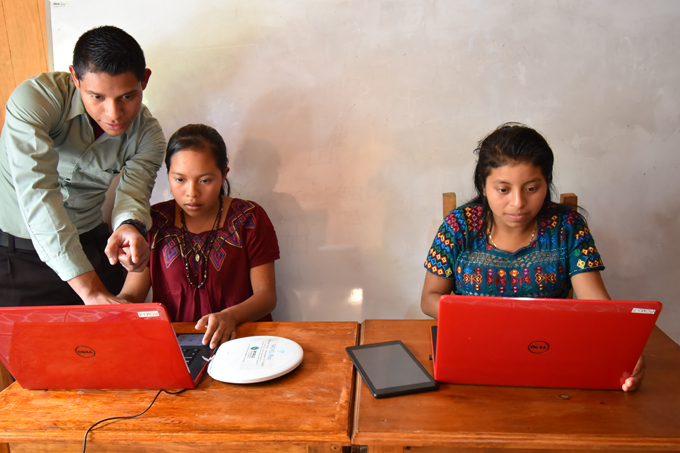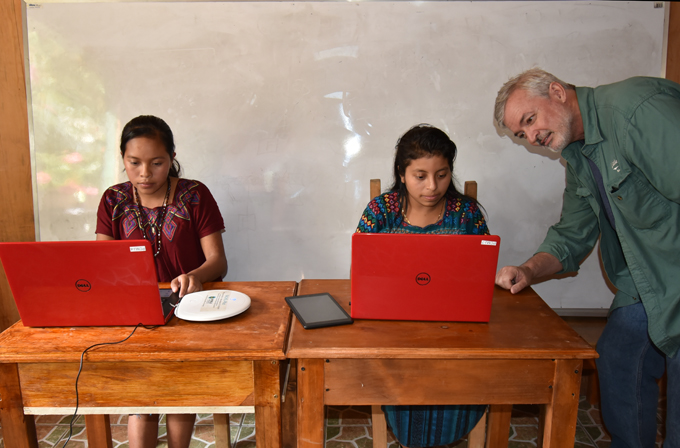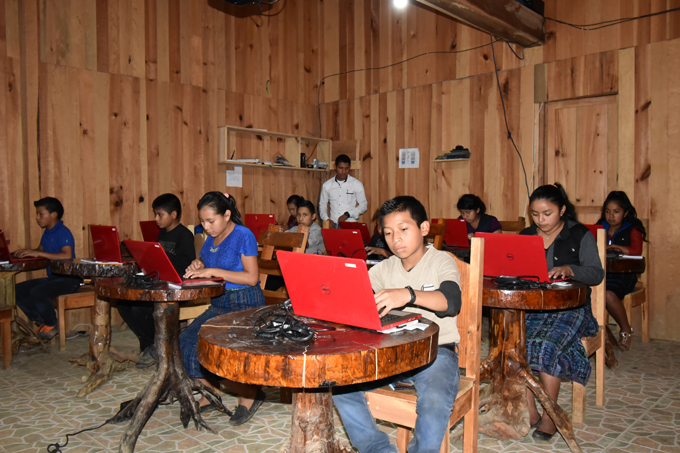 In backpacks, pockets, and purses, students bring their connected devices to school. But “connected” may be the wrong term; perhaps “connectable” devices is more accurate. Bandwidth means that a network can deliver data in a specified amount of time. For many schools, bandwidth may be a limitation. For some teachers, there is nothing more frustrating than planning a lesson that requires students to access the internet only to find that the bandwidth delivers data at speeds at which snails would sneer.
In backpacks, pockets, and purses, students bring their connected devices to school. But “connected” may be the wrong term; perhaps “connectable” devices is more accurate. Bandwidth means that a network can deliver data in a specified amount of time. For many schools, bandwidth may be a limitation. For some teachers, there is nothing more frustrating than planning a lesson that requires students to access the internet only to find that the bandwidth delivers data at speeds at which snails would sneer.
Some educational settings require restrictions on access to the internet, such as those that serve incarcerated youth or adults. Others are so distant from internet connections that it is prohibitively expensive to ensure all students have access.
Meet RACHEL, a server capable of delivering open educational resources to students’ devices offline. Students connect their devices in the same way they would to any Wi-Fi connection. Once connected, they can surf sites, engage in research, and participate in educational simulations all without actually being on the internet.
 RACHEL stands for remote area community education and learning. Stored open educational resources are downloaded to the device, and once downloaded RACHEL can be transported anywhere. Although they can use content gathered and curated by World Possible, the nonprofit organization that produces RACHEL, teachers are free to add their own resources, subject to fair use and other copyright considerations.
RACHEL stands for remote area community education and learning. Stored open educational resources are downloaded to the device, and once downloaded RACHEL can be transported anywhere. Although they can use content gathered and curated by World Possible, the nonprofit organization that produces RACHEL, teachers are free to add their own resources, subject to fair use and other copyright considerations.
Do you need RACHEL? You might if your school or district’s bandwidth is too slow for several students to be online at once. You might if your school or institution doesn’t have access to the internet because the school is in a remote or rural location and cannot reliably connect. If institutional requirements limit internet access (such as schools that serve incarcerated youth), you might need RACHEL.
One strong example is the Maya Jaguar Institute in the Department of Huehuetenango. The Institute operates a middle school (basico) and a high school (secundario). Internet access is via satellite, a source that is unreliable, slow, and expensive. Adopt-a-Village in Guatemala bought its first RACHEL server last year for installation at Maya Jaguar. It became so popular for students to use critical internet skills that the foundation bought a second server for the middle school in 2019. Students use RACHEL and its open educational resources in the same way they would to participate in internet workshop, Webquest, or online simulations for science or history courses.
Could your school benefit from RACHEL?
- The school or district internet bandwidth is so slow that pages end up timing out.
- Your school or institution restricts access to the open internet.
- Access to the internet is expensive, unreliable, or unavailable.
 How do you get RACHEL?
How do you get RACHEL?
The best ideas are often openly available. Savvy educators can build RACHEL themselves. World Possible also sells the servers with the content you choose. If you want to download or customize the content on your portable web server, that’s no problem. You can choose resources in several languages, in addition to popular websites including Khan Academy, Wikipedia, Career Girls, and more. Knowing there is a problem is one thing. Working toward a solution to that problem is quite another. The digital divide remains a problem in today’s world, but RACHEL is helping bridge that gap.
Thomas DeVere Wolsey teaches in the Graduate School of Education at The American University in Cairo.
This article is part of a series from the International Literacy Association Technology in Literacy Education Special Interest Group (TILE-SIG).